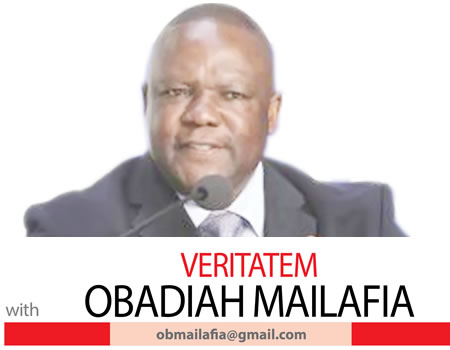I went to school in France; the beneficiary of a prestigious French Government scholarship that enabled me to spend some of my most formative years in that wonderful country. I studied French Language and Civilisation in Vichy, in the Auvergne Region – the very heartland of France itself. I then did post-graduate studies in Economics, Public Administration and International Law in the incomparable City of Lights (Paris).
As a young man, I immersed myself in the cultural and intellectual life of France; attending musical concerts; visiting art museums; talks by famous philosophers and statesmen. I spent summer breaks with a family in the Auvergne countryside; reciting the poems of Lamartine by candlelight; downing gallons upon gallons of vintage Bordeaux with cheese.
France opened her arms to me as a young man. I reciprocated by plunging headlong with aplomb and abandon. I occasionally attended mass at Cathedral de Notre-Dame; went mountain climbing at the Puy de Dôme. During the national Day on July 15th, we went wild singing La Marseillaise until our voices went hoarse.
Some of the greatest thinkers and religious mystics that shaped my intellectual and spiritual sensibilities are French: François Fenelon, Bernard of Clairvaux, Blaise Pascale, Rousseau, Alexis de Tocqueville, Larochefoucauld, Albert Schweitzer, Emmanuel Levinas, Sartre, Camus, Simone Weil, Emmanuel Mounier and Jacques Maritain.
So, I do not come to you this morning as someone who hates the French –I couldn’t even if I tried. But this is not to say we can overlook the evils that France continues to commit against Africa.
Last week, the Quai d’Orsay (French Ministry of Foreign Affairs) summoned African nations to a one-day conference in Paris ostensibly to discuss financial affairs. This ritual summoning of African leaders to the capitals of the world powers is what I call “tributary pan-Africanism”. Beijing, Tokyo, Delhi and Moscow are guilty of it. I find it demeaning to the pride and honour of our continent.
The France-Africa Summit on the Financing of African Economies was held on Tuesday May, 18. The objective was to assess the economic and financial challenges posed to African nations by the corona pandemic and to hammer out practical solutions.
After almost two decades of economic growth, Covid-19 has been a real dampener for Africa’s economic prospects. The IMF estimates that some a $285 billion in additional financing will be needed during the 2021-2025 period by African countries if they are adequately address the social and economic setbacks occasioned by global pandemic. African countries currently face daunting challenges in meeting the Sustainable Development Goals (SDGs) targets for 2030 and those for the African Union’s 2063 Agenda. The Summit also aimed to canvass global commitment to ensuring that more affordable vaccines are allocated to African countries, including treatments and diagnostics.
In his address during the occasion President Emmanuel Macron promised that France would press for the IMF to commit SDRs100 billion specifically for Africa, latest by October; noting that an urgent stimulus package is needed if African countries are not be left behind in the emerging post-corona international economic order.
In her own intervention, IMF Managing Director, Kristalina Georgieva observed that it was time to stem the “dangerous divergence between advanced economies and developing countries, especially (in) Africa”.
The ensuing Communiqué made several important recommendations.
First, the Summit urges the planned expansion of the IMF’s Special Drawings Rights (SDRs) instruments to the tune of $650 billion, of which $33 billion should be committed to Africa.
Secondly, it also recommended that the Fund’s Poverty Reduction and Growth Trust (PRGT)should be expanded to finance green, resilient and inclusive recovery in Africa; complemented by the network of African Public Development Banks (PDBs) and the African Development Bank (AfDB) and similar agencies’ capacity to originate more quality projects in such sectors as climate, human capital, infrastructure and the private sector.
Thirdly, the international community was urged to expedite action on debt relief for the poorest and most indebted countries in line with the November 2020 commitment on the Common Framework for Debt Treatments beyond the Debt Service Suspension Initiative (DSSI).
Fourthly, the Summit committed its members to support the proposal to create an Alliance for Entrepreneurship in Africa. Here, I see the influence of my good friend Tony Elumelu, who has been driving this gospel of entrepreneurship through the Elumelu Foundation and through his ideology of Africapitalism. The summit urges bilateral partnerships and multilateral finance agencies such as AfDB, European Bank for Reconstruction and Development (EBRD), European Investment Bank (EIB) and the European Commission among others, to work together towards creating this new alliance, in addition to promoting micro, small and medium-sized enterprises (MSMEs) and Affirmative Finance Action for Women in Africa (AFAWA).
Fifthly, the Summit welcomed the creation of the African Continental Free Trade Agreement (ACFTA) and the “digital transformation of the continent to close the digital divide and accelerate adoption of open, fair and non-discriminatory digital ecosystems”. However, for these initiatives to be sustainable, African governments were urged to push forward implementation of policy in human capital, infrastructure and macroeconomics to ensure a vibrant enabling environment that allows the private sector to flourish while continuing to attract capital inflows in terms of both ODA and inflows FDI and portfolio capital. Public sector expertise, skills and capacity were also stressed as being essential to fully tapping into the potential of African nations to prosper in the years ahead.
I have to confess that this conference came as a master-stroke for France; an impressive attempt by Paris to repackage itself as the intermediary for Africa in a time of crisis. The AfDB forecasts that as many as 39 million people on the continent could fall into poverty by year’s end 2021 while many of our countries are already facing debt distress because of the ongoing global pandemic.
France and Africa have a rather complicated relationship. On the hand, France likes to see herself as the guardian and friend of Africa. On the other hand, France is our greatest nightmare. Since 1958, France-Afrique has been the underpinning ideology of France’s neo-colonial stranglehold over our continent; a relationship driven by a pernicious web of trade, monetary, military and covert activities that ensure that France calls the final shots in Africa. It is, sadly, a truism that most of our “Francophonie” regimes exist at the pleasure of our Roman masters at the Quai d’Orsay. None could survive if they decided to chart an independent course. France continues to maintain an iniquitous “colonial tax” on its former dependencies. The French Treasury controls the external reserves of the “Franc Zone” countries. They cannot spend their own money without permission from the Trésor français. And even at that, they can only withdraw a maximum of 20 percent, in the form of loans at commercial rates. Their funds are invested on their behalf and they may or may not be told how much interest it has yielded from the capital markets.
French companies have first right of refusal for all mining concessions. France today is the military master of the Sahel, a region exceeding the Western European landmass.
I was in Ouagadougou two years ago. I was regaled with tales of French military cargo planes hauling away tons of gold and precious stones on a daily basis without the Burkinabe authorities having a say in it. A few months ago, we came across a video-clip on social media where French military pirates were caught at Bamako Airport trying to smuggle out several crates of gold. There is anecdotal evidence linking France not only to Boko Haram but also to the more deadly ISWAP.
World powers are, of course, quick to point out that we are the ultimate architects of our own misfortunes. I agree more. But this is not to say that foreign powers do not have their leprous hands in our current predicaments. Imperialism is alive and doing well. Covert activities are flourishing in Africa. World powers are just more adept at covering up their own tracks. But the jurists will tell us that absence of proof is not the proof of absence.
YOU SHOULD NOT MISS THESE HEADLINES FROM NIGERIAN TRIBUNE
We Have Not Had Water Supply In Months ― Abeokuta Residents
In spite of the huge investment in the water sector by the government and international organisations, water scarcity has grown to become a perennial nightmare for residents of Abeokuta, the Ogun State capital. This report x-rays the lives and experiences of residents in getting clean, potable and affordable water amidst the surge of COVID-19 cases in the state.
Selfies, video calls and Chinese documentaries: The things you’ll meet onboard Lagos-Ibadan train
The Lagos-Ibadan railway was inaugurated recently for a full paid operation by the Nigerian Railway Corporation after about a year of free test-run. Our reporter joined the train to and fro Lagos from Ibadan and tells his experience in this report…
WATCH TOP VIDEOS FROM NIGERIAN TRIBUNE TV
- Let’s Talk About SELF-AWARENESS
- Is Your Confidence Mistaken for Pride? Let’s talk about it
- Is Etiquette About Perfection…Or Just Not Being Rude?
- Top Psychologist Reveal 3 Signs You’re Struggling With Imposter Syndrome
- Do You Pick Up Work-Related Calls at Midnight or Never? Let’s Talk About Boundaries







